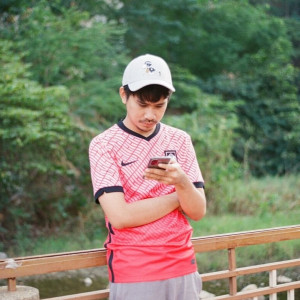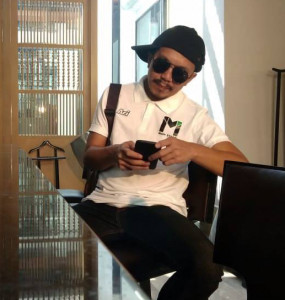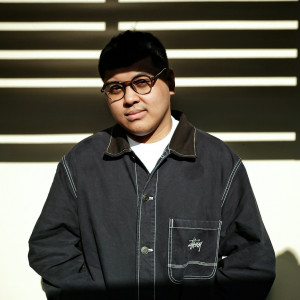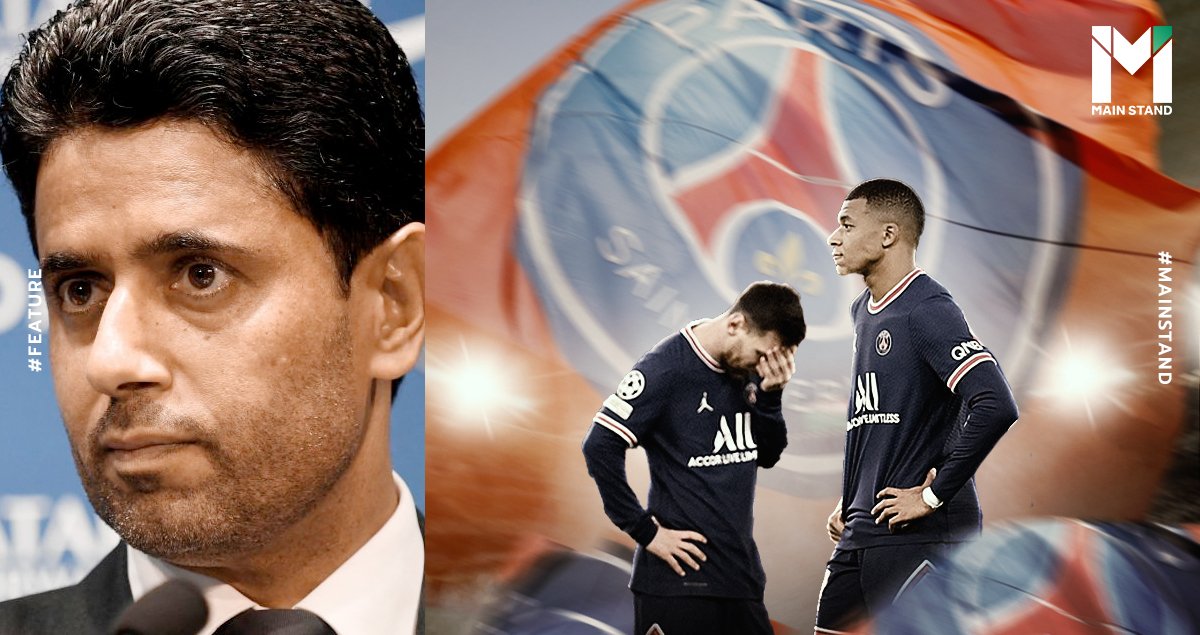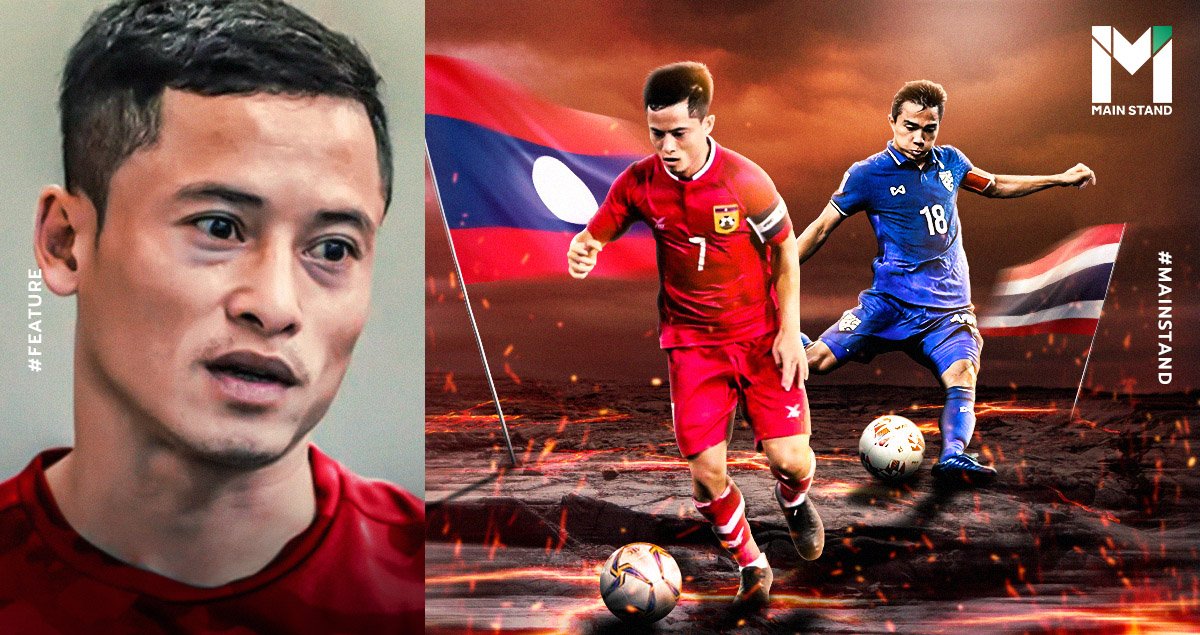
“I really want to help the kids from my hometown, and that is always on my mind. Some of them are full of talent and ability but never had a chance to shine. If I don’t go back with what I’ve learned in Thailand, who is going to teach them?”
Known as the Messi of Laos, Soukaphone Vongchiengkham has had to grapple with the weight of his country's hopes and dreams.
Discounted by many as being ‘too small’ for the professional game, he has emphatically proven the doubters wrong, both in his native Laos and in his adoptive home of Thailand, where he has become a household name.
Now, having experienced professional football abroad for many years, Soukaphone thinks only of how he can give back to his country, for the remainder of his playing career and beyond.
Follow along with Main Stand to head about the hopes, dreams, and hardships of Soukaphone Vongchiengkham.
“Too small for football”
Soukaphone first experienced playing football in Thailand at the age of 13, when he was invited to compete in Chaiyapong Cup in Pichit, Thailand as part of a team representing his native Laos.
“Everyone saw our team as just a placeholder,” Soukaphone recalled. “Japanese and South Korean players were accommodated in hotels while the Laos team had to sleep at temples.”
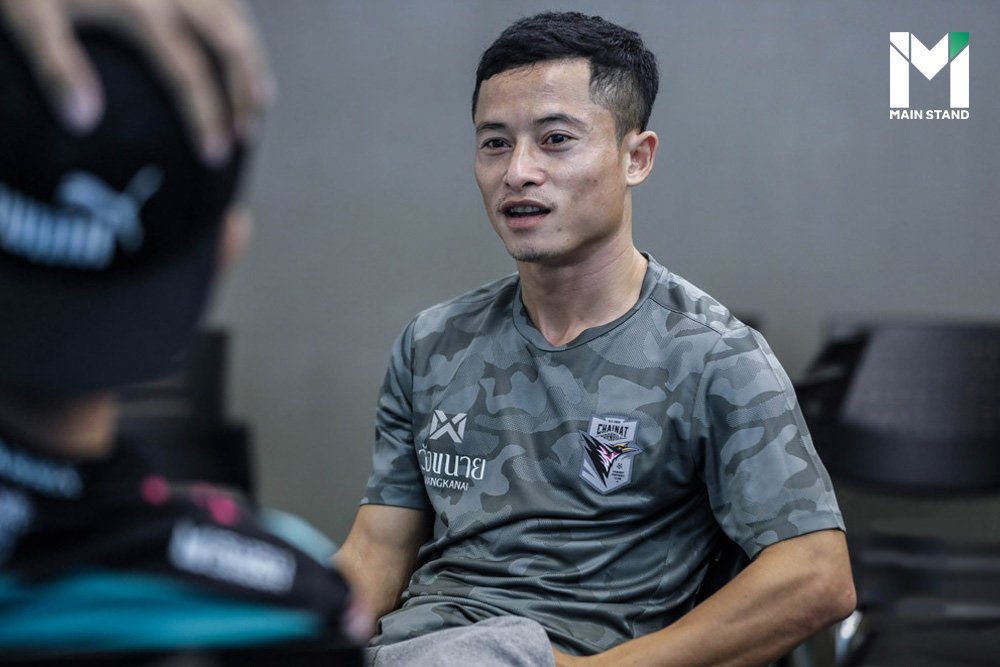
“Our first match was against the host, Pichit. They thought they would win easily for sure, but the Laos team advanced through the next round. It was the quarter finals, where we went up against Assumption College Nakhon Ratchasima who had (future Thailand national team stars) Sarach Yooyen and Atit Daosawang. We also managed to beat them.”
“We advanced past Nakhon Sawan next and went to the finals. We faced off against Bangkok Christian and proceeded to win the championship, and I was awarded as the tournament’s key player,” he recalls.
After his experience in Thailand, Soukaphone was determined in pursuing his life's dream of being a professional footballer. However, his journey to reach this dream was not always smooth. For a start, he had to tolerate insults about his physical stature.
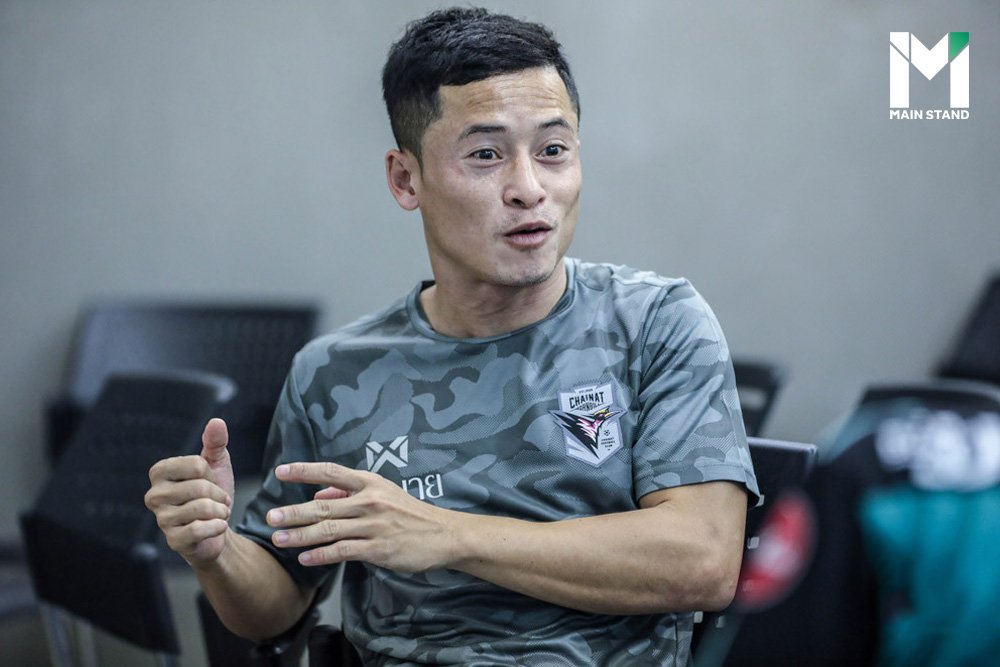
“When I was younger, I never thought about being a professional footballer because I was a very small kid growing up. I am only 156cm, even Chanathip (Songkrasin) is taller than me.”
“After high school, my former coaches all shared the same sentiment. They told me to drop football because my physique would not allow me to compete with the professionals.”
“I cried asking myself if it was true. I cried all day because I kept thinking about their words. My dream as a kid was to be a professional footballer. My thoughts wandered and I even blamed my family for giving me this body.”
“As a Christian, I believed that God could help me. God taught me that if I can stand up against anything, there’s nothing to fear. Those teachings guided me through my life. No matter what people say, I can make the choice of walking away from it.”
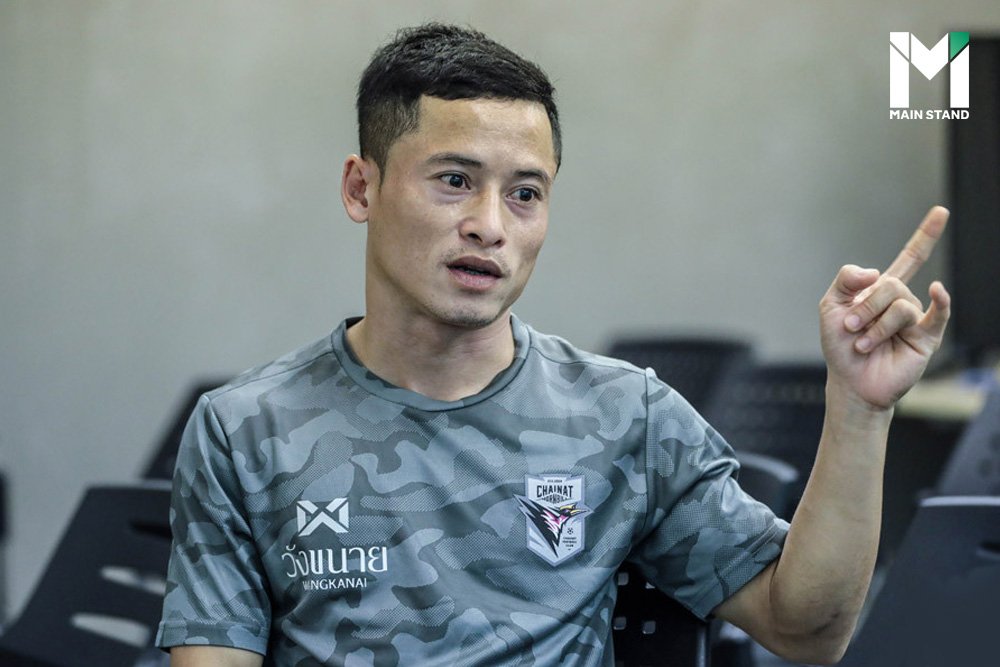
With his faith in God, Soukaphone decided to take a daring leap. After representing Laos at a U21 tournament in Brunei, he skipped out on his teammates’ flight home and flew alone to Bangkok’s Suvarnabhumi airport. From there, he took a connecting flight to Krabi, where he signed his professional contract in Thailand with no idea of what the future had in store.
Moving to Thailand
“The day I first arrived at Krabi, the manager and all the club officials came to pick me up,” Soukaphone reflected. “I wore my Laos national team shirt and they weren’t sure if it was me. They probably didn’t think a footballer would be this small.”
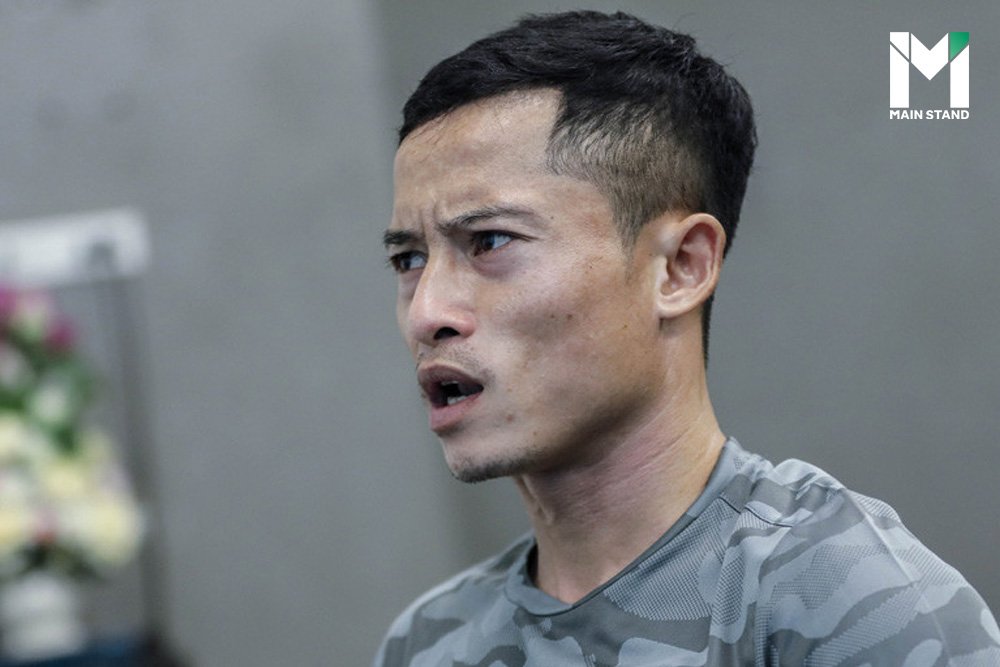
“I had just three days to adapt to the team. I joined training sessions on Thursday and by Sunday there was a match to play. I didn’t know if I was going to play in that match, as my documents were still pending. However, I continued practicing without knowing my fate.”
“By coincidence, a player in the same position as me sprained his ankle right before the match. The coach came to me and said to get ready, if we can get the documents processed then I will play. We were against Bangkok F.C., which was a powerhouse in the second division back then. I did not know anything about them, but all I knew was I had to compete against them that evening.”
Soukaphone didn’t pass up his stroke of fortune, scoring twice as his new side managed a 2-1 victory to kick off the 2012 season. His contribution instantly made him the new hero of Krabi.
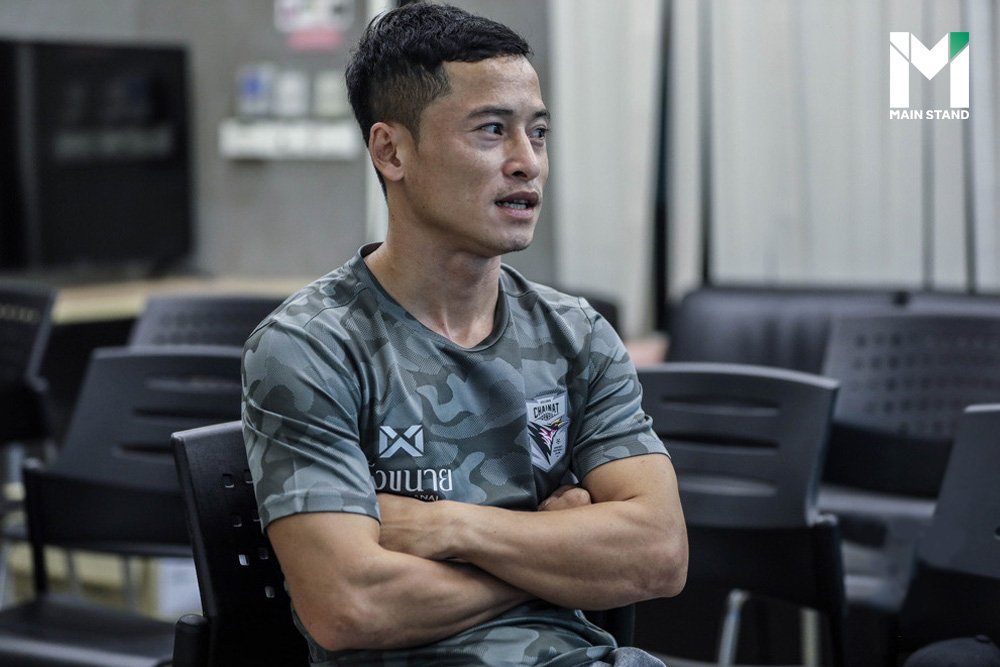
“In the morning I woke up and the media was all over me. People were calling for interviews and inviting me for meals. Their perspective of me was very different from the day I arrived.”
Soukaphone spent a further two years playing for Krabi, during which time he earned the respect of fans and teammates alike and was eventually appointed captain. Due to his successful spell, clubs up and down the country were starting to take notice.
“I already captained for Krabi, [so I felt it was] time for me to go out and explore the country, and to see how football is like in other provinces,” Soukaphone reflected.
In 2014, the Laos international decided to transfer to Phitsanulok F.C., but due to the club’s financial issues, he had to find another club mid-season. He found himself in Saraburi F.C. where he had a chance to learn from Thai football legend Totchtawan Sripan, who was making his name as a coach at his hometown club.
“I had offers from BBCU and Nakhon Ratchasima F.C., but I chose Saraburi because I believed that if I wanted to improve as a midfielder I had to learn from P’Ban (Tochtawan).”
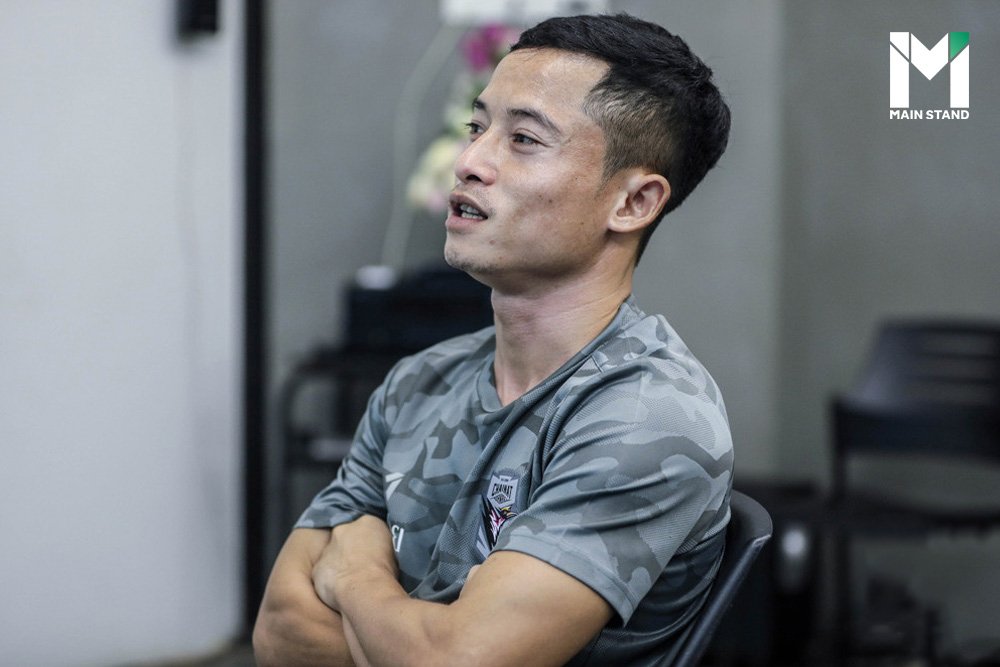
Soukaphone’s performances in Saraburi were exquisite, and he played a key role in completing Totchtawan’s project of bringing the club to the top flight.
After the campaign, Soukaphone saw an even more stunning prospect on the horizon - a chance to test himself in Japan. Faced with a risky decision, Soukaphone once again followed his heart and took a leap of faith, turning down the chance to play in Thailand’s top division to embark on his next chapter in the land of the rising sun.
“After the 2014 season, an agent contacted me. He wanted me to play in Japan. Back then I still had a contract with Saraburi F.C., but I requested termination of the contract immediately.”
“But when I got to Japan I realized that my body was not up to the task. I requested to go back since I knew I could not play in Japan.”
Unlike his previous jump, this one turned out to be a misstep in Soukaphone’s career. His unsuccessful stint led him to return home for two years. Once again, though, the allure of the Thai League drew Soukaphone back in.
“I decided to come back to Thailand to give it another chance. I had the opportunity to test myself with Sisaket FC, where I trained for 2 weeks and received a contract offer. They stated that they could only give me so much compensation, but I was ok with it. Money is not important as long as I am able to do what I love.”
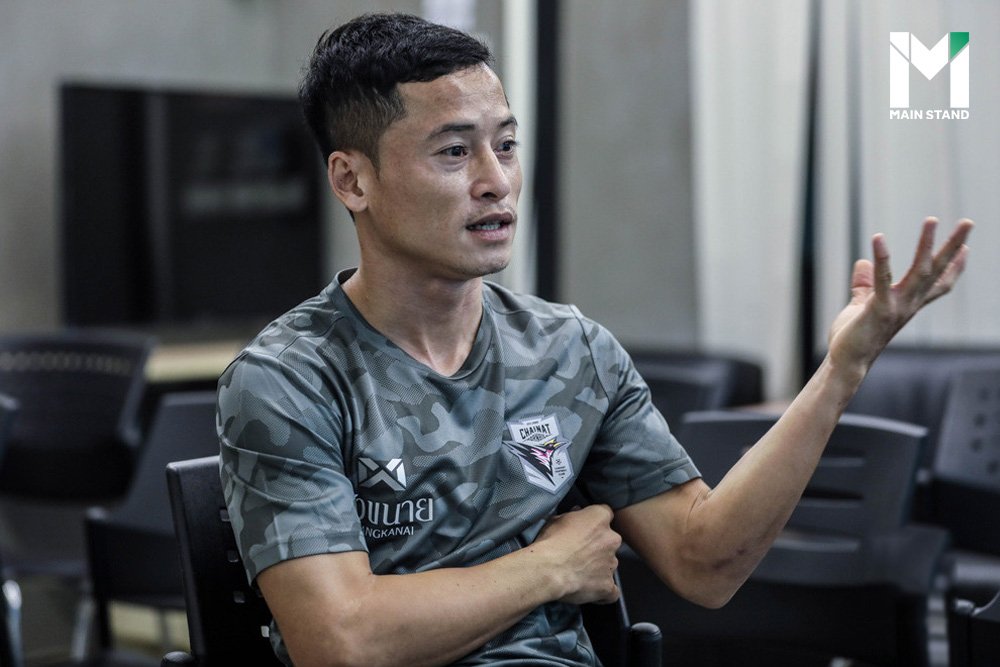
It wasn’t only compensation that was lacking. Soukaphone was harassed by his colleagues, who derided his accomplishments as nothing but the past. Once again, he was just an ordinary footballer, an underdog even, who had to prove himself on the field.
“On my first day, N’Chuay (Somchai Chuayboonchum) said to me ‘Tell your teammates what are we signing you for’. I used that as fuel for training and working harder. After 3-4 matches he came to me and said ‘You cannot get sick or injured, it would be great if we could have ten of you’.’”
“I worked very hard. While others were sleeping, I trained. I trained from 6 am, even if my body wasn’t up for it I had to go over my limits. My body is not the same as others, so whether the team had a session or not, I would keep training.”
“I came back not for leisure, I am here to work. I am not only fighting for myself. I am fighting for my country. Many people may transfer for the money, but I brought my country’s name with me.”
“I have to give it my all. After this I can go back and tell the new generations I have been here and there, there’s nothing to fear. The journey in the world of football creates companionship along the way.”
Building a legacy
Today, Soukaphone Vongchiengkham is undoubtedly one of Laos’ best footballers, but the surprising thing is that he is barely known in Laos. Instead, Soukaphone is more well known among Thai fans, and he still plays in Thailand to thank the people who believed in him all these years.
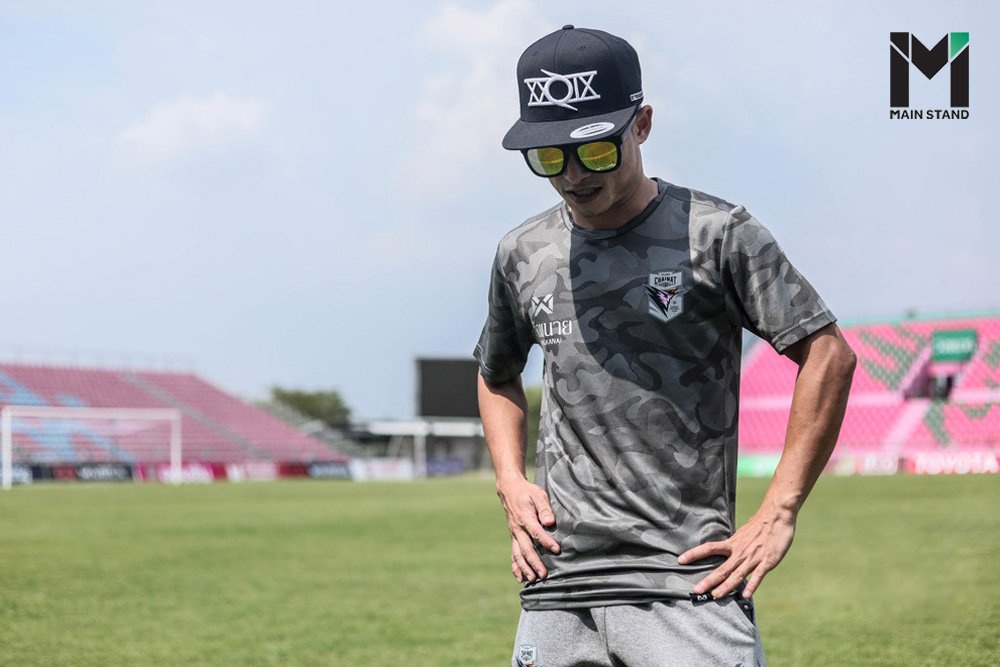
“Laos people in Thailand usually don't watch football, as most of them are working as farmers and laborers. They don’t have access to television and they can’t afford to watch football.”
“Sometimes people recognize me back in Laos as a national footballer, but not as much as Thai people. When I meet Thai fans they would call out my name and ask for pictures.”
“I think that a lot more Thai people know me than Laos people. If I have to compare, when I went out for food in Sisaket, most of the town would recognize me.”
His life as a footballer has allowed Soukaphone to soak in the culture from all over Thailand. Given the similarity between here and his home, adapting to life was not as difficult as he imagined.
“I think Thai and Laos culture really isn’t much different. We’re both Buddhist countries and the food is not a problem. There’s a vast selection of food in the south and Isan region. Communicating was not an issue as well.”
“Everywhere in Thailand, there will be Isan people. We’re the same inside, they’ll invite me for Som-tum. Early on in Krabi, people who didn’t know me didn’t realize I was from Laos, they thought I was from Isan”
“For me, Thai people are very friendly. Every team’s fans have been wonderful. They may give me slack at times, but they were never hostile against me for being from Laos”
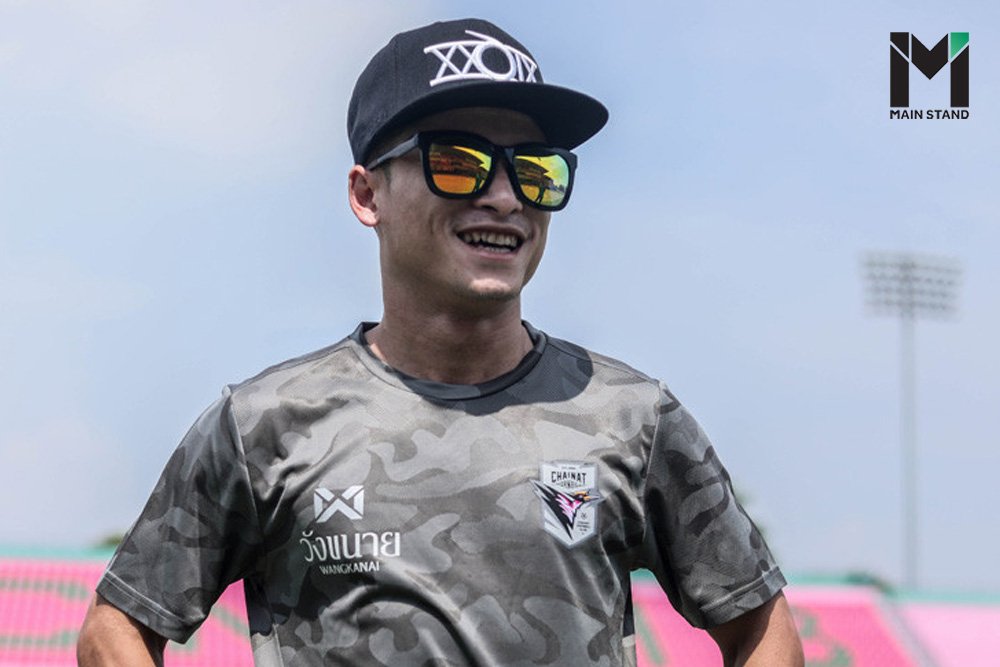
In addition to popularity, Soukaphone’s career in Thailand has also been financially lucrative as well. However, he has remained squarely focused on his goal of serving his country.
“There was a time when I had commercial offers with energy drinks. They chose me as a representative for Laos national footballer and I received 200k baht in compensation. But I never forgot where I came from. To this day I speak of Laos every time I have a chance to.”
“I usually eat the same food, so much that my wife tells me to eat better. I like eating som-tum, fermented fish, bamboo shoot curry, and the more basic ‘home-like’ foods. I like reliving the old days.”
“When I’m in a foreign land I know I have to fight. Just like Chanathip during his first experience in Japan. Sometimes I think it’s too difficult, but you have to make them accept you. Today you may be on the bench and you may not get to play for the whole season, but if you get disheartened or give up you have already lost. That’s the wrong mentality.”
Giving back to his homeland
After spending many years here, Soukaphone has fully acclimatized to life in his adopted home. He can speak and read Thai fluently and is married to a Thai wife. However, no matter how comfortable he may be, he’s never forgotten his homeland, and giving back is what drives him to this day.
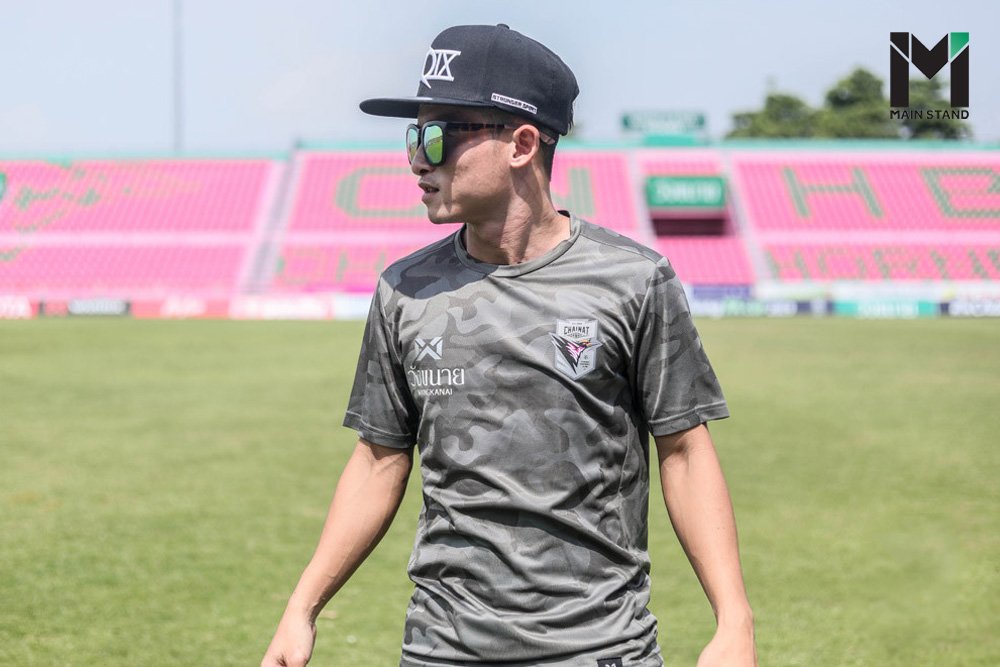
“If I have kids, I want them to stay in Laos. My wife also understands that I want to live peacefully and quietly. I don’t like the hectic city life like in Bangkok. It’s too stressful!”
Though Soukaphone enjoys being in Thailand, his pride for his homeland clearly runs deep, and giving back to his country is always at the forefront of his thoughts.
“When I was a kid I dreamt of singing my national anthem to fans before a match. When I first sang the Laos anthem on the field, I cried.”
“When I scored my first goal, I ran celebrating like mad. I even ran harder than during the game! I never thought I would make it here.”
“The dream of a kid from the countryside is to support my country. What I can offer is being a professional footballer. As a child and I never thought I would be number one. I just wanted to play for the national team.”
“I came so far from that day and I brought my national team with me. I came to play in the Thai League. My fans have expectations of me. I have to perform and give it my all and make the fans proud. Every time I step on that field I will run until I die, for my country.”
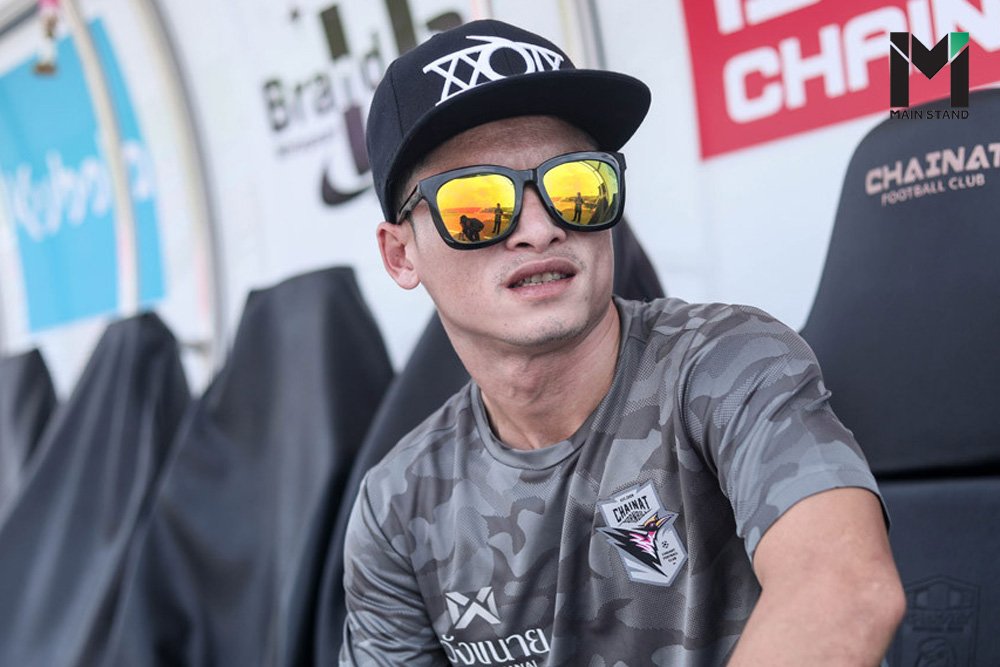
Soukaphone has been a gift to his national team over the course of his playing career. However, now aged 30, his mind is inevitably thinking of how he can further the cause even after he hangs up his boots.
“I really want to help the kids from my hometown, and that is always on my mind. I want to see them grow bigger than me. I don't want them to just play in Thailand and be in my shoes, I want them to be better.”
In fact, Soukaphone has already been certified as an AFC C-License coach and has worked at the aspiring youth team Ezra FC.

“Sometimes I think about my juniors at home. They do not grow up with the right experiences, as there is no one to teach them proper football. During my time in Thailand, I thought about the kids at home who didn’t have the same opportunities as me. Before football, my family was dirt poor.”
“Until this day I still think about those kids. Will they ever get their chance like me? If I don’t go back with what I’ve learned in Thailand, who is going to teach them? Some of them are full of talent and ability but never had a chance to shine.”
“Thai people look down on Laos football as low grade, it’s true. But Thai clubs also never gave those footballers a chance as well.”
“In my perspective, there isn’t much difference in terms of skill. It’s the lack of opportunities that’s hurting Laos players. Our stature, determination, and abilities are not much different to those in Thailand - the only difference is we never got a chance.”
“I have plans to go back to Laos and start a football academy. I will recruit talented kids to live and train together. My goal is to make them better than me.”
Soukaphone has always believed that footballers from Laos have the same potential as any other nation and will shine once given the opportunity. This issue truly resonates with him, as he too was unjustly overlooked his whole life.

“When I was going through selection for the national team, Lamnao Singto, a popular star who previously played in the Thai league, said in front of everyone that ‘the little guy won’t be able to compete.’ I ignored him and woke up at 5 am every day to train, to show the coach that I am growing and improving.”
“I never thought about stopping. Even though no one believed in me, I know that I will make them all accept me. There’s nothing I can’t overcome. Today will be the same as yesterday if I don’t keep moving forward. I have to show them. I have to work hard.”
“My message to all the kids aspiring to be like me is that I wasn’t born a superstar. You have to ask yourself, have you trained enough? Have you tried everything? I believe everyone has to build themselves from the ground up.”
“I did my best and gave it my all. If you do the same, football will always be a beautiful sport for you,” he concluded.

